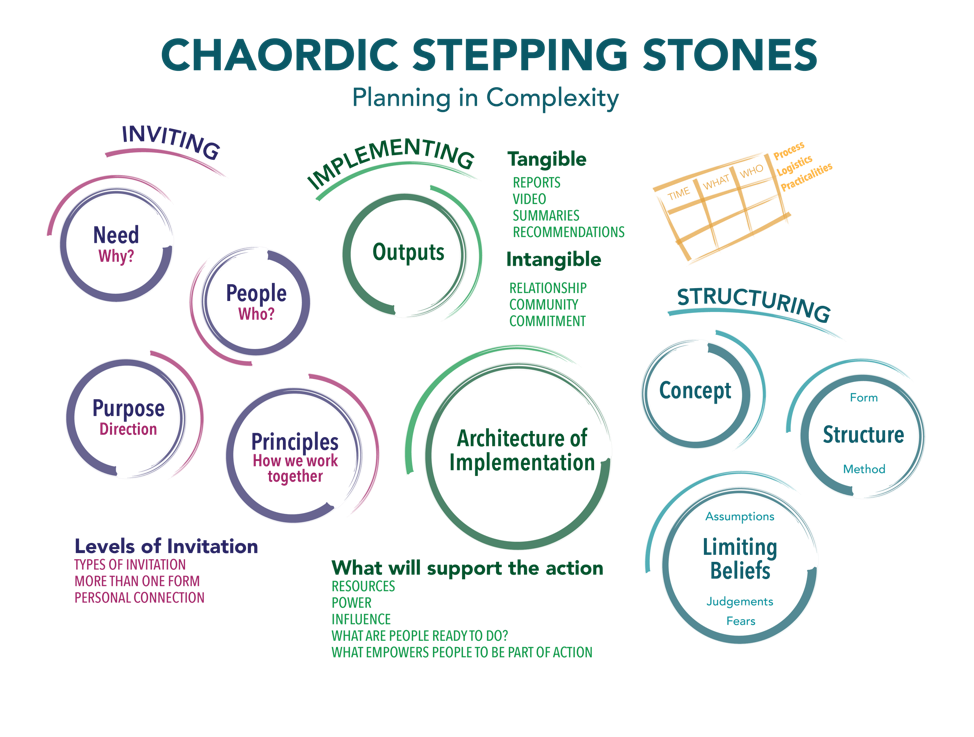Hello from Miranda Yates and Nancy Eagan from Good Shepherd Services (GSS) and Elise Cappella, Sophia Hwang, and Michael Kieffer from the Institute of Human Development and Social Change at New York University (NYU). We are members of a research-practice partnership (RPP) called ACROSS (Advancing Collaborative Research in Out of School Settings).
We would like to share a tool that we recently used to strengthen the engagement of a broader range of RPP members and to encourage more staff and students to initiate and co-develop projects. Chris Corrigan’s chaordic stepping stones tool offered an invaluable guide in this effort. It provided us with a set of essential questions to reflect upon together. Over the course of two 3-hour meetings with GSS program and evaluation staff and NYU faculty and students, we considered:
- the pressing need that our partnership addresses,
- the purpose of ACROSS,
- important people in the room and not in the room,
- partnership principles,
- limiting beliefs that curtail our creativity about what’s possible,
- co-created outputs,
- aligned concepts for specific projects we could undertake, and
- supportive structures including defined roles and activities to advance our plans.
Lessons Learned:
- Valuable conversations: After completing this process, our partnership feels more grounded in shared purpose and commitment to advance educational equity in New York City. The number of actively engaged ACROSS members and collaborative projects has expanded.
- The power of shared principles: To guide our progress, we identified principles closely connected to key characteristics of effective RPPs: mutualism, relevance, rigor, trusting relationships, and long-term commitment. Reflecting our shared commitment to equity and using research and evaluation as a tool for social justice, we also lifted up democratizing evidence and equitable evaluation.
- It’s always a good time: While ACROSS had been in existence for a few years with an articulated purpose and need, the opportunity to reflect as a larger group allowed us to build upon our original understandings of the partnership, engage more members in leading the work, and more intentionally establish mutual expectations of mission-driven commitment, transparency and accountability.
Rad Resources:
For more resources on participatory processes and working in complexity, check out www.chriscorrigan.com and www.artofhosting.org.

Do you have questions, concerns, kudos, or content to extend this aea365 contribution? Please add them in the comments section for this post on the aea365 webpage so that we may enrich our community of practice. Would you like to submit an aea365 Tip? Please send a note of interest to aea365@eval.org. aea365 is sponsored by the American Evaluation Association and provides a Tip-a-Day by and for evaluators.
